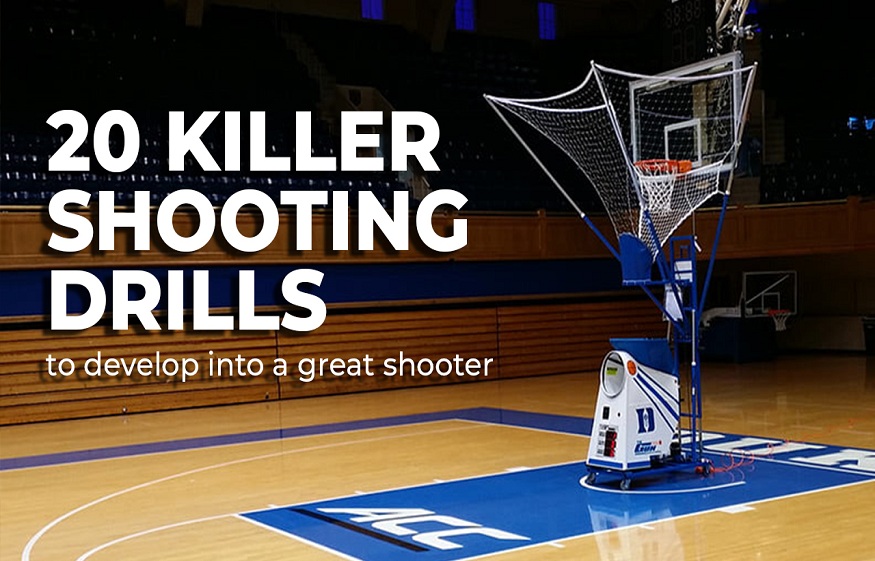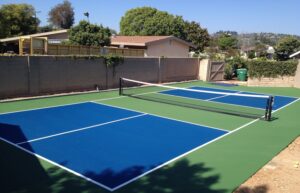Over-Coaching Hurts Development and Makes Players Want To Quit

Over-coaching is a problem that plagues many sports, including basketball. Many coaches have the best intentions when they over-coach their players, but it can do more harm than good for a player’s development.
This article will discuss what over-coaching means and how it can hurt your players’ confidence and enjoyment of the game.
What is over-coaching?
Over-coaching is the act of giving players too much information or taking away their ability to make decisions on the court or in a basketball training facility. Too much coaching can overwhelm a player, making them feel nervous and uncertain instead of confident about what they are doing out there.
The biggest culprit for over-coaching is during timeouts. Coaches give way too many instructions and expect players to absorb all that input while still thinking clearly enough to play well after coming back onto the floor.
That’s not how it works; you need your athletes to function at 100% capacity when they get back into action after taking a break from playing (we call this mental load).
Examples of over-coaching in basketball
Below are some examples of over-coaching in basketball:
1. Adding too much “strategy.”
Some coaches usually believe that the more strategies they add, the better their chances of winning the game.
This is one of the most common mistakes that coaches make because they think more strategies will increase their chances of winning, making them lose instead.
Many players get confused and nervous when a coach begins adding too many new strategies during a timeout while in action or even before playing with different sets on the floor. Coaches should only add strategy if it’s going to help your team win, not just for showing how smart you are as a coach.
2. Making too many changes during a timeout
Timeouts are when you have the best chance to communicate with your players in an indoor basketball facility, so you should only make changes that will help them win.
Making too many coaching decisions during a timeout is one of the most common mistakes coaches make because they think it will increase their chances of winning, but this makes them lose instead.
It’s important for coaches not to force anything on their team and let players play freely rather than taking over control by constantly calling timeouts or making individual player adjustments throughout games.
3. Giving a player too many responsibilities
One thing that coaches tend to do, whether they realize it or not, is giving their players too many responsibilities (i.e., too much “strategy”) during the game, which makes them confused and easily frustrated.
When you play basketball under pressure or in high-stakes situations where there’s a lot on the line, everything starts to feel like an emergency because your brain goes into panic mode (aka fight-or-flight response).
This means that even if you know what needs to be done, your body may respond by freezing up and not learning how to perform at its best – especially since most of us don’t practice performing well under extreme circumstances.
4. Too many corrections when teaching shooting form
When you’re teaching a player to shoot, it only takes a few adjustments before the brain starts becoming frustrated and shut down from information overload.
When learning anything new, every slight adjustment can make a big difference in whether or not someone will be able to understand it successfully or not.
For your athletes to get better at making their own decisions in a basketball shooting facility (i.e., thinking rather than reacting), they need time playing with the freedom to practice processing situations correctly without feeling pressured by you.
Why over-coaching hurts development
Now, we will go over the six reasons why over-coaching hurts development.
1. Players get confused and nervous
When you constantly correct and adjust your players during a game, they will get confused.
They won’t be able to make the right decisions on their own because they are too busy trying to figure out what your next instruction will be or how it applies in this particular situation.
The more uncertain athletes feel on the court, the worse they play. It also makes them nervous about making mistakes that might result in being re-directed by you again – so then they start playing even less confidently!
This leaves little room for growth or creativity since no one has any time to think independently when there’s always someone barking orders at them from across the floor.
2. Players don’t make their own decisions
Your players won’t think for themselves if they are always looking to you for direction. Instead, athletes need the time and space on the court to learn how to make decisions by themselves so that their skills will transfer over when it comes time for them to play without you.
For example, imagine a player who shoots great during practice but can never seem to shoot well in games because he is constantly thinking about your instructions instead of focusing entirely on making his shot. This means that any instruction or correction is given during the game only makes him more anxious, which has an even worse effect on his shooting!
This type of athlete needs much more independent work before being introduced into the actual competition, where there’s no chance at all for correction or feedback.
3. Over-coaching hurts a player’s confidence
Players are often afraid to make mistakes and will only try the easiest or safest solution to fear being judged. When players are constantly corrected, they start associating their confidence with your feedback/approval instead of trusting in themselves (this holds true for adults).
It’s not easy to fix this situation, but you can do it by spending more time on independent work during practice in an indoor basketball facility, so players get used to making decisions on their own without any help from coaches.
Conclusion
The best coaches are those who know when to reign their players in. Coaches should recognize if they are trying too hard and give the player space for improvement, especially during trainings with a facility basketball machine. Players want a coach that is attentive enough to guide without being overbearing or demanding.







